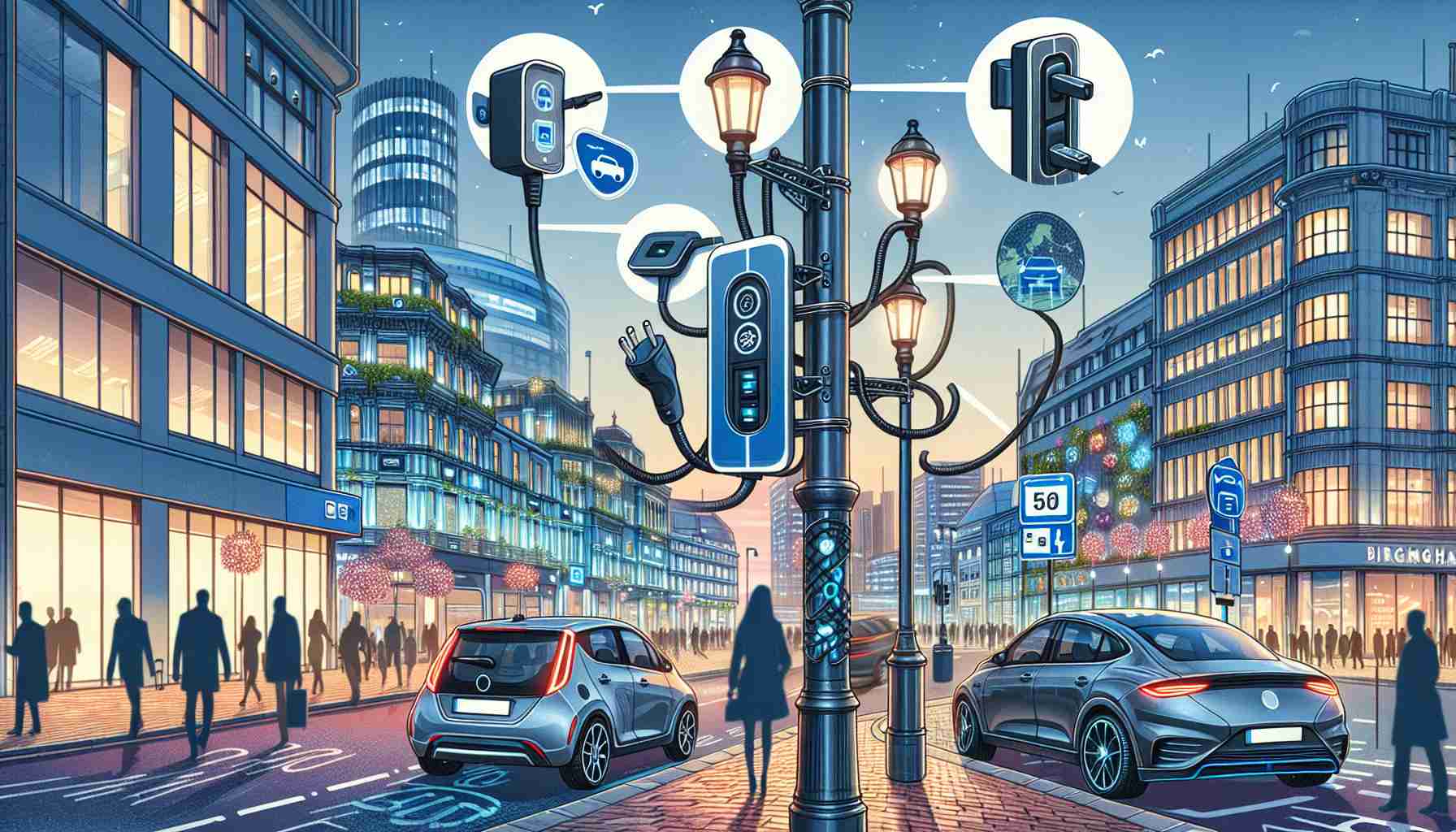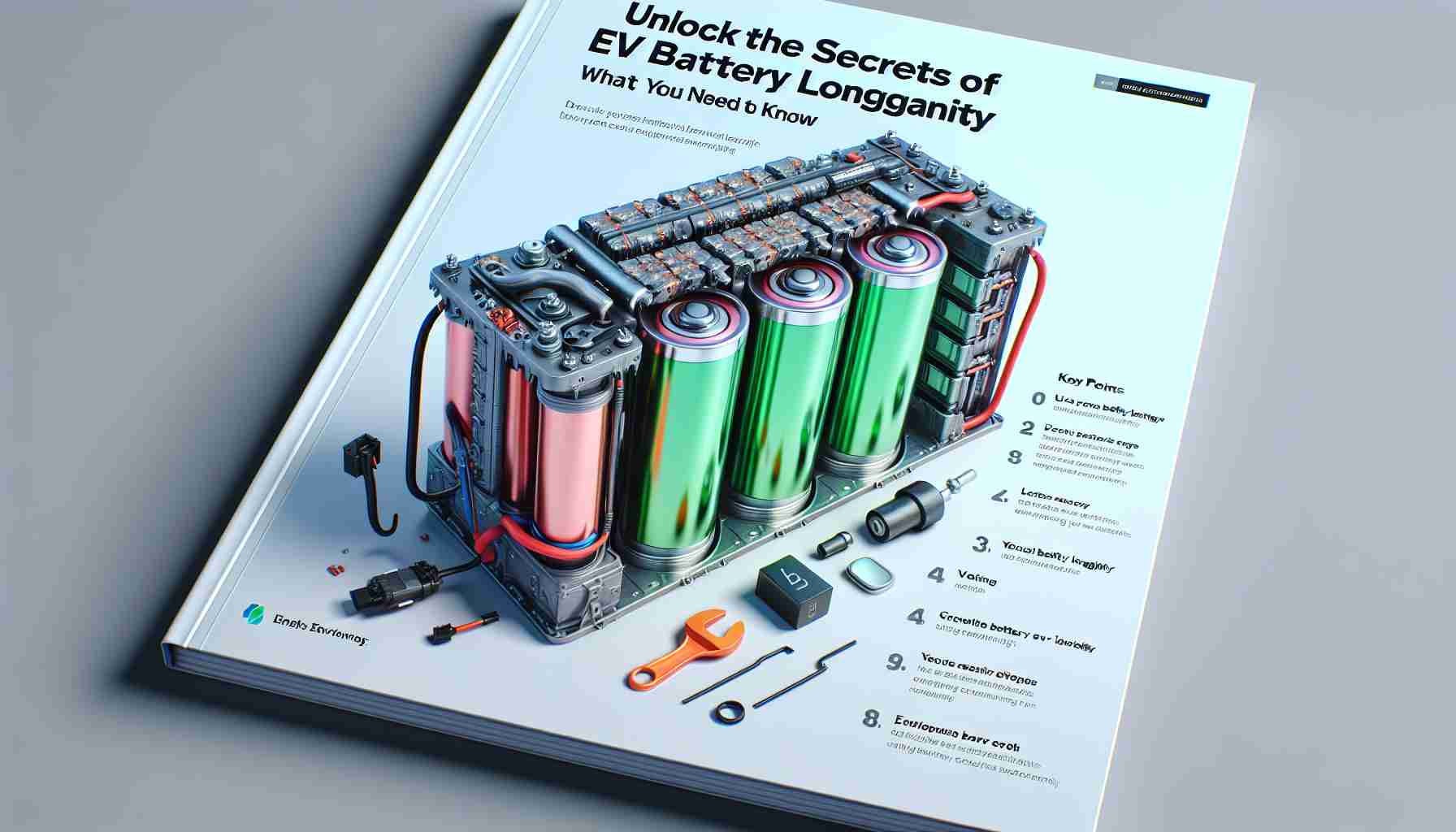- Birmingham is launching a pilot scheme to convert lampposts into EV charging stations.
- The initiative includes 560 chargepoints across 82 streets, benefiting residents without off-street parking.
- Installation of each chargepoint takes less than an hour, minimizing disruption.
- The project aligns with Birmingham’s environmental strategy, aiming for cleaner air and healthier communities.
- Supported by funding from the Office of Zero Emission Vehicles, the initiative enhances the city’s green infrastructure.
- ubitricity, the UK’s largest chargepoint operator, is partnering to create a substantial public EV charging network.
- Birmingham is positioning itself as a leader in the electric vehicle transition with innovative charging solutions.
Birmingham is charging ahead into the future with an innovative pilot scheme that transforms ordinary lampposts into electric vehicle (EV) charging stations. Thanks to a partnership between the city council and ubitricity, residents without off-street parking will soon find 560 chargepoints installed on 82 streets throughout the city.
Imagine a quick and hassle-free installation taking less than an hour for each chargepoint—this groundbreaking initiative is not just practical; it’s a crucial step in Birmingham’s environmental strategy. With 300 chargepoints already in place and another 260 set to arrive by the end of spring, this scheme is funded by the Office of Zero Emission Vehicles, enhancing the city’s green infrastructure.
The vision for this project goes beyond just convenience. Local officials emphasize the importance of developing robust infrastructure that supports low and zero-emission vehicles, ultimately paving the way for cleaner air and a healthier Birmingham.
As the UK’s largest chargepoint operator, ubitricity is eager to support the city’s mission, aiming to create one of the largest public EV charging networks outside of London. This electrifying development isn’t an isolated event either—just recently, Zest partnered with local councils to establish public charging hubs, marking Birmingham as a frontrunner in EV transition.
In a world racing towards sustainability, Birmingham is not just sitting back; it’s actively lighting the way for a greener future. The key takeaway? With accessible charging solutions, the shift to electric vehicles in urban landscapes has never been more attainable. Get ready, Birmingham—your electric journey starts now!
Revolutionizing Birmingham’s Streets: EV Charging Stations Set to Transform Urban Mobility
Birmingham’s Innovative EV Charging Pilot Scheme
Birmingham is launching a transformative initiative to convert ordinary lampposts into electric vehicle (EV) charging stations, with a focus on supporting residents without off-street parking. This groundbreaking collaboration between the city council and ubitricity will see 560 chargepoints installed across 82 streets. As part of Birmingham’s ambitious environmental strategy, the installation process for each chargepoint is remarkably efficient, taking less than an hour to complete.
# How This Initiative Enhances Green Infrastructure
Currently hosting 300 chargepoints, Birmingham will add another 260 by the end of spring, all funded by the Office of Zero Emission Vehicles. This initiative is not only about convenience; it represents a significant effort to develop a robust infrastructure that supports low and zero-emission vehicles. Local officials are committed to improving air quality and promoting healthier living conditions in the city.
Market Analysis and Trends in Electric Vehicle Charging
As the largest chargepoint operator in the UK, ubitricity is poised to expand Birmingham’s public EV charging network to become one of the largest outside of London. This aligns with a broader trend toward sustainability and the adoption of electric vehicles across urban areas. The collaboration with Zest further establishes Birmingham as a leader in the transition to electric mobility, highlighting the increasing necessity for accessible charging solutions.
Pros and Cons of the Initiative
Pros:
– Convenient Access: Residents without private charging can now rely on nearby lampposts for charging.
– Environmental Impact: Supports the transition to electric vehicles, aiming for reduced emissions in the city.
– Quick Installation: Fast setup times allow for rapid deployment of chargepoints.
Cons:
– Potential Clutter: Increased street furniture may affect urban aesthetics.
– Grid Demand: Heightened electricity usage could stress local infrastructure.
– Dependence on Public Infrastructure: Residents may still face logistical challenges if charging isn’t consistently available.
Frequently Asked Questions
Q1: How will the charging process work at these lampposts?
A1: Charging at lampposts will be similar to traditional charging points. Users will need to bring their charging cables and simply plug in their electric vehicle. Payment will typically be handled through an app or contactless payment system.
Q2: Are there any costs associated with using these chargepoints?
A2: While specific pricing details may vary, there is generally a fee for using public charging points. Users can expect to pay a competitive rate per kilowatt-hour, similar to other public charging facilities.
Q3: What are the city’s long-term plans for EV charging infrastructure?
A3: Birmingham aims to significantly expand its EV charging network, not only through lampposts but also through dedicated charging hubs and public-private partnerships, thus further supporting the growth of electric vehicle adoption.
For more insights and to stay updated on Birmingham’s EV initiatives, visit Birmingham City Council.
Birmingham is paving the way for a sustainable urban future, ensuring that residents have the necessary resources for a cleaner, greener environment. The city’s proactive approach and innovative solutions mark an essential turn toward eco-friendly transportation.













